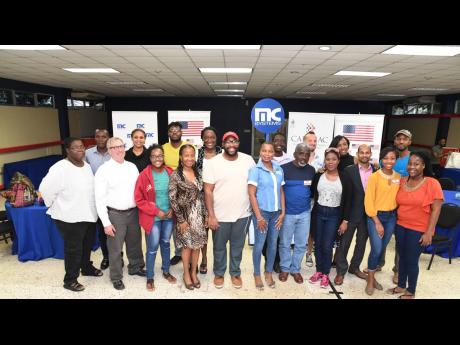Technology in Focus | Journalists warned: Beware of gizmo gifts when covering technology
Alan Deutschman, journalism professor at the University of Nevada, Reno, United States of America (USA), has urged local journalists to maintain their integrity and independence in covering technology as a beat, because of the enormous sums of money, power and influence that companies in the industry exert.
Deutschman explained that covering technology posed several challenges ethically. As a result, he warned journalists to be careful of “freebies”.
“The NY Times has a policy that there are no freebies, and there are no gifts. You can do short-term loans in respect of electronic products, gadgets or licensed software, but everything needs to be returned or given back. You really do not want to be on the take. You want to be in a position where you can write critically and independently,” he told journalists.
“If you have a beat reporter who is constantly being showered with expensive gadgets and technology, there is really no way to keep that integrity,” the professor added.
Deutschman was presenting at the two-day technology reporting workshop for journalists, mounted by MC Systems, the technology arm of the MCS Group, the non-financial division of the JN Group, the US Embassy in Jamaica, and the Caribbean School of Media and Communication (CARIMAC). The event was also endorsed by the Press Association of Jamaica.
The workshop, entitled ‘Tech as a Beat’, was held at The University of the West Indies, Mona, recently and was a part of a three-day exchange with local journalists, students of journalism and organising partners.
Deutschman, the author of two books about the late Apple co-founder Steve Jobs, emphasised that for some major news outlets in the USA, the policy was that journalists could not accept gifts when covering the technology beat to maintain the integrity of the publication.
“At The New York Times and The Wall Street Journal, their reporters cannot accept any gifts of technology. If Apple comes out with a new iPhone, you might want to try it out, play with it, review it and give it back. Give it back quickly,” he stated.
The NY Times policy outlines that technology editors and reporters may not accept gifts of equipment, programmes or materials from manufacturers or vendors, nor should they “endorse equipment, programmes or materials, or offer advice on product design”. And, the “equipment or materials should be returned promptly after testing unless purchased by The NY Times”.
Deutschman explained that it was important for reporters to maintain their integrity, just as it was important for them to differentiate between what was real, as opposed to gadgets that were just purely “hype and fraud”.
“When you’re looking at new technology, it is very important to evaluate if this is going to be amazing and revolutionary, or is it potentially even fraud,” he said.
He emphasised that journalists also had an obligation to correct misinformation and point readers to the truth, by consulting experts and writing balanced news stories, as opposed to producing what the industry wanted.
“What we can do is have the same attitude of caution, scepticism, of wanting to get outside independent sources, as we would in covering any other beat,” he asserted.
Place for Technology Reporting
Lecturer at CARIMAC Dr Corrine Barnes has urged local journalists to look more closely at covering emerging digital technology. She says the area is often overlooked and that there is plenty of room for reporting on technology.
“Here at CARIMAC, when our journalism students get to their final year, they are required to do a course called ‘Advance Print Reporting’, for which they select a beat. Now, technology is one of the beats which we try to get them to select, but invariably, someone has to be forced to take on that beat, because they believe that technology is about iPhones,” she informed.
However, Barnes pointed out that it is more than reporting about the latest gadgets; given that there are areas such as: the human interest elements, how technology impacts business transactions, the latest software development and how technology affects relationships, such as parental relationships.
“… We want technology to be incorporated into the various human-interest stories; the stories which deal with everyday life, so that more persons learn and understand how it connects,” she said.
Agreeing with Barnes, Deutschman said there is an area for this type of reporting.
“I think that under service journalism, explanatory journalism, opinion columns rooted in reporting facts; and investigative journalism, there are tremendous opportunities to do technology journalism that is really helpful for people, not only in their respective lives or their work,” said the former journalist, 31 years.
Colin McGann, assistant general manager at MC Systems, in agreeing with the journalism educators, said that technology reporting can be weaved in other subject areas, rather than being stripped out as an isolated topic.
“The way to go about achieving that is not to actually treat it as a niche,” he said. “But try to incorporate it in your stories, because a lot of what is taking place, in terms of crime, education, business, there are aspects of technology to address those issues; and maybe, as a part of those articles, one can incorporate a short paragraph which speaks to how technology can address some of those issues,” he informed.
The roundtable discussion was held under the theme ‘Journalism in an Emerging Digital Landscape in Jamaica’ at CARIMAC, on The University of the West Indies (UWI), Mona campus, on May 31.



